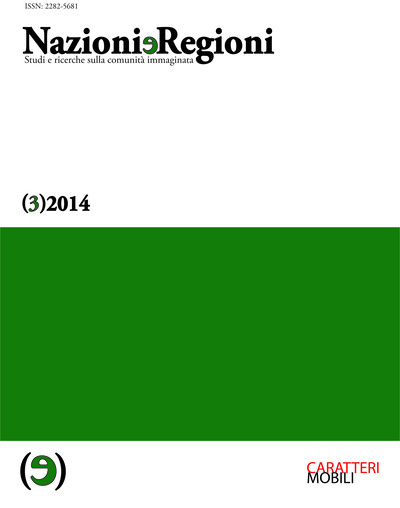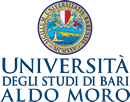Il nation-building in Russia: una strategia orientata sui valori
DOI:
https://doi.org/10.15162/2282-5681/1595Parole chiave:
Russia, nation-building, nazionalismo russo, regionalismo, state-building, consolidamento etnico, Russian nationalism, regionalism, ethnic consolidationAbstract
Originariamente pubblicato nel 2004 come introduzione al libro Nation-Building and Common Values in Russia, curato dall’autore, questo saggio analizza come nei primi anni della presidenza Putin la Federazione Russa abbia proseguito sulla strada tracciata da El’cin della costruzione di un’identità nazionale civica panrussa, ma abbia altresì tentato un nuovo approccio (non privo di tensioni e contraddizioni interne), incentrando il processo di nation-building panrusso su dei valori ritenuti comuni a tutta la cittadinanza russa, alcuni dei quali descritti come «universali», altri come «specificamente russi». Basandosi su una indagine condotta in alcune regioni particolarmente rappresentative della Russia, il saggio analizza le precondizioni e lo svolgersi di tale processo di costruzione nazionale, focalizzandosi sulle complesse interazioni tra nation-building statale e regionale, state-building e consolidamento etnico, tenendo conto non solo degli orientamenti delle élite, ma anche della reazione delle masse.
Originally published in 2004 as an introduction to the volume Nation-Building and Common Values in Russia, edited by the author himself, this essay analyzes how in the early years of Putin’s presidency the Russian Federation continued towards the construction of a civic, all-Russian national identity along the path traced by Yeltsin, but it also tried a new approach (characterized by internal tensions and contradictions) which centred all-Russian nation-building on some common values allegedly shared by all Russian citizens, some of which were deemed «universal», while some others were described as «Russian». On the basis of a survey carried out in some particularly representative regions of Russia, the essay analyzes the preconditions and the unfolding of this nation-building process, focusing on the complex interactions among state-centred and regional nation-building, state-building and ethnic consolidation, taking into account not only the elites’ attitudes, but also the masses’ responses.
Riferimenti bibliografici
Abramson P. R. – Inglehart R. (1995), Value Change in Global Perspective, University of Michigan Press, Ann Arbor.
Baškirova E. – Lajdinen N. (2001), «Imidž Moskvy glazami rossijan», Sociologičeskie issledovanija, n. 2, pp. 45-50.
Berdjaev N. (1971), Russkaja ideja, YMCA Press, Paris.
Blakkisrud H. (2004), «Russian Regionalism Redefined?: Nation-Building, Values and Federal Discourse», in Kolstø P. – Blakkisrud H., 2004, pp. 239-268.
Brubaker R. (1996), Nationalism Reframed: Nationhood and the National Question in the New Europe, Cambridge University Press, Cambridge.
Brubaker R. (1998), «Myths and Misconceptions in the Study of Nationalism», in Hall J. (ed.), The State of the Nation, Cambridge University Press, Cambridge, pp. 272-306.
Eriksen T. H. (1993), Ethnicity and Nationalism: Anthropological Perspectives, Pluto Press, London.
Gellner E. (1997), Nationalism, Phoenix, London.
Gabdrafikov I. – Enikeev A. (2004), «Bashkortostan: Preconditions and Prospects of Civic Integration in a Multiethnic Region», in Kolstø P. –
Blakkisrud H., 2004, pp. 89-122.
Golosov G. V. – Shevchenko I. (2004), «Nation-Building and Common Values in St. Petersburg», in Kolstø P. – Blakkisrud H., 2004, pp. 191-216.
Gorenburg D. (1999), «Regional Separatism in Russia: Ethnic Mobilization or Power Grab?», Europe-Asia Studies, vol. 51, no. 2 (March), pp. 245-274.
Gorenburg D. (1999a), «Identity Change in Bashkortostan: Tatars into Bashkirs and Back», Ethnic and Racial Studies, vol. 22, no. 3 (May), pp. 554-580.
Graney K. E. (1999), «Education Reform in Tatarstan and Bashkortostan: Sovereignty Projects in Post-Soviet Russia», Europe-Asia Studies, vol. 51, no. 4 (June), pp. 611-632.
Hirsch F. (1997), «The Soviet Union as a Work-in-Progress», Slavic Review, vol. 56, no. 2 (Summer), pp. 251-278.
Horowitz D. L. (1985), Ethnic Groups in Conflict, University of California Press, Berkeley CA.
Hosking G. (1997), Russia: People and Empire, Harvard University Press, Cambridge MA.
Kappeler A. (2006), La Russia: storia di un impero multietnico, trad. it. di S. Torelli, a cura di A. Ferrari, Lavoro, Roma [1992, 2001].
Keenan E. (1986), «Muscovite Political Folkways», The Russian Review, n. 45, (April), pp. 115-181.
Khasanova G. (2004), «Nation-Building and Values in Russian Textbooks», in Kolstø P. – Blakkisrud H., 2004, pp. 269-300.
Kisriev E. (2004), «Republic of Daghestan: Nation-Building Inside Russia’s Womb», in Kolstø P. – Blakkisrud H., 2004, pp. 123-158.
Kolstoe [Kolstø] P. (1995), Russians in the Former Soviet Republics, C. Hurst, London.
Kolstø P. (1996), «The New Russian Diaspora – An Identity of Its Own? Possible Identity Trajectories for Russians in the Former Soviet Republic», Ethnic and Racial Studies, vol. 19, no. 3 (July), pp. 609-639.
Kolstø P. (ed.) (1999), Nation-Building and Ethnic Integration in Post-Soviet Societies: An Investigation of Latvia and Kazakhstan, Westview Press, Boulder.
Kolstø P. (1999a), «Territorialising Diasporas: The Case of Russians in the Former Soviet Republics», Millennium, vol. 28, no. 3, pp. 607-631.
Kolstø P. (2000), Political Construction Sites: Nation-Building in Russia and the Post-Soviet States, Westview Press, Boulder.
Kolstø P. (ed.) (2002), National Integration and Violent Conflict in Post-Soviet Societies: The Cases of Estonia and Moldova, Rowman & Littlefield, Lanham MD-Oxford.
Kolstø P. – Blakkisrud H. (eds.) (2004), Nation-Building and Common Values in Russia, Rowman & Littlefield, Lanham MD-Oxford.
Kuzio T. (2001), «‘Nationalizing States’ or Nation-Building? A Critical Review of the Theoretical Literature and Empirical Evidence», Nations and Nationalism, vol. 7, no. 2, pp. 135-154.
Losskij N. (1957), Charakter russkogo naroda, Posev, Frankfurt-am-Main.
Melvin N. (1995), Russians Beyond Russia: The Politics of National Identity, RIIA, London.
Moiseev S. (2004), «The Lonely Heart of the World: Nation-Building and Common Values in Novosibirsk Oblast», in Kolstø P. – Blakkisrud H., 2004, pp. 159-190.
Neumann I. B. (1993), «Russia as Central Europe’s Constituting Other», East European Politics and Societies, vol. 7, no. 2 (Spring), pp. 349-370.
Neumann I. B. (1996), Russia and the Idea of Europe: A Study in Identity and International Relations, Routledge, London.
Rogozin D. (1998), Vremja byt’ russkim, Moskva.
Shabaev I. (2004), «Peculiarities of Nation-Building in the Republic of Komi», in Kolstø P. – Blakkisrud H., 2004, pp. 59-88.
Shlapentokh V. (2004), «Moscow’s Values: Masses and Elite», in Kolstø P. – Blakkisrud H., 2004, pp. 217-238.
Shlapentokh V. – Levita R. – Loiberg M. (1997), From Submission to Rebellion: The Provinces versus the Center in Russia, Westview Press, Boulder CO.
Slezkine Y. (1994), «The USSR as a Communal Apartment, or How a Socialist State Promoted Ethnic Particularism», Slavic Review, vol. 53, no. 2 (Summer), pp. 414-452.
Smith G. et alii (1998), Nation-Building in the Post-Soviet Borderlands: The Politics of National Identities, Cambridge University Press, Cambridge.
Staalesen A. (2004), «Orthodoxy and Islam in Post-Soviet Russia: Opposing Confessional Cultures or Unifying Force?», in Kolstø P. – Blakkisrud H., 2004, pp. 301-326.
Suny R. G. (1993), The Revenge of the Past: Nationalism, Revolution and the Collapse of the Soviet Union, Stanford University Press, Stanford CA.
Szamuely T. (1974), The Russian Tradition, ed. by R. Conquest, Secker & Warburg, London.
Tishkov V. (1997), Ethnicity, Nationalism and Conflict in and after the Soviet Union: The Mind Aflame, Sage, London.
Treisman D. (1997), «Russia’s ‘Ethnic Revival’: The Separatist Activism of Regional Leaders in a Postcommunist Order», World Politics, vol. 49, no. 1, pp. 212-249.
Vladimirov A. (2000), O nacional’noj gosudarstvennoj idee Rossii, Jukea, Moskva.
Zevelev I. (2001), Russia and Its New Diasporas, The United States Institute of Peace, Washington DC.
Downloads
Fascicolo
Sezione
Licenza
Nazioni e regioni è una rivista open access che applica la licenza Creative Commons CC BY-NC-ND 4.0 a tutti i contenuti pubblicati.
Nazioni e regioni is an open-access journal that applies the Creative Commons CC BY-NC-ND 4.0 licence to all published contents.







